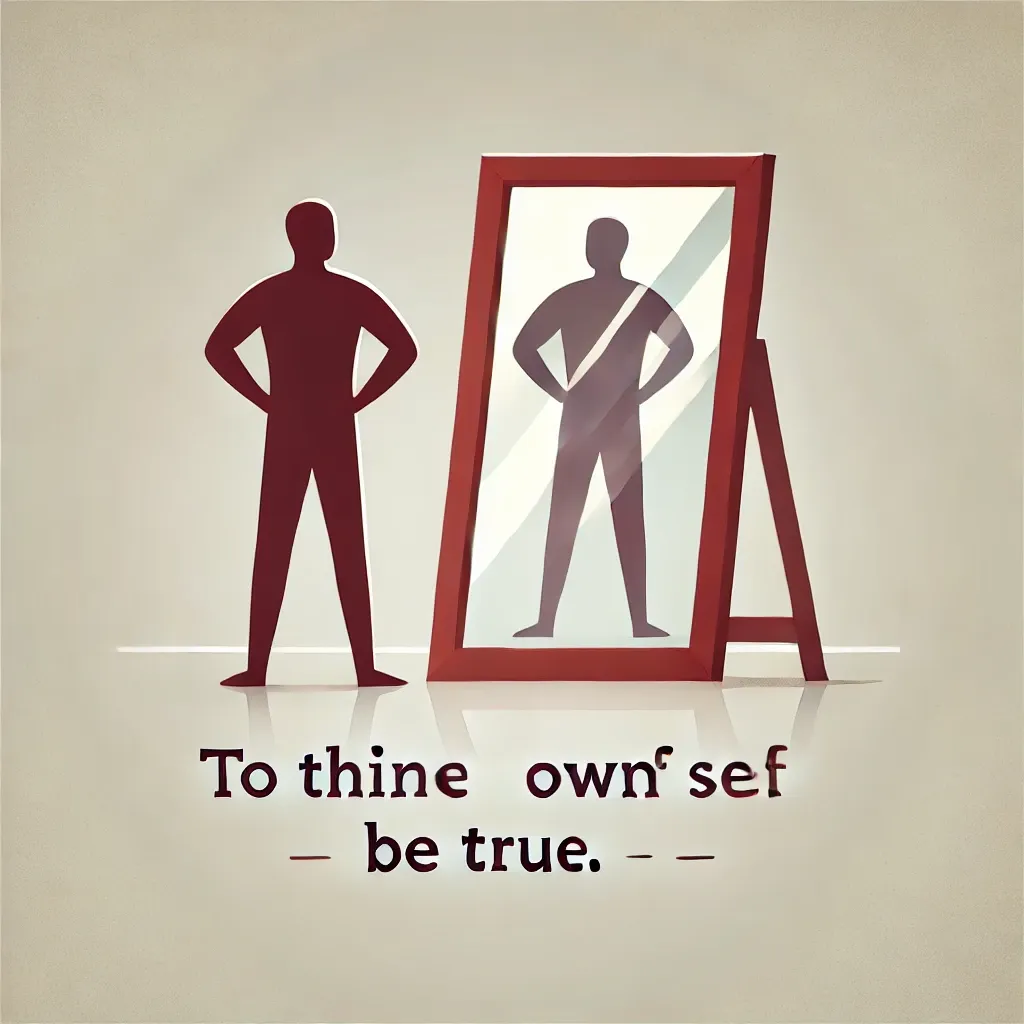What is the meaning of the phrase ‘to thine own self be true’?
Be true to yourself, be authentic. Do what’s right for you.
What is the origin of the phrase ‘to thine own self be true’?
The phrase ‘to thine own self be true’ comes from the pen of Englands’ most famous wordsmith, William Shakespeare himself. In Act 1, Scene 3, in lines 78 through to 80, of the tragedy Hamlet, the character Polonius, King Claudius’ chief minister, is talking with his son, Laertes, and says:
“This above all: to thine own self be true,
And it must follow, as the night the day,
Thou canst not then be false to any man.”
Polonius is advising his son to be honest and true to himself, implying that by doing so, he will naturally be honest with others. The idea is that personal integrity and self-respect form the foundation for all other virtues and relationships.
However, it is worth noting at this point that Polonius himself is often portrayed as a somewhat hypocritical and verbose character, whose actions do not always align with his advice, adding an element of irony to his words.
What are some notable uses of the phrase ‘to thine own self be true’?
The phrase is alluded to in the dystopian novel Brave New World by Aldous Huxley published in 1932, to reflect the tension between individual identity and societal expectations.
There was also a book titled To Thine Own Self Be True by Dr Lewis M. Andrews, published in 1989 about the relationship between spiritual values and emotional health.
The phrase is also used in the film Dead Poets Society to encourage students to find their true voice and stay true to their beliefs.
The sentiment of the phrase ‘to thine own self be true’ is also echoed in other works, though not always in that exact form. For instance in the works of former US president Abraham Lincoln, writer Ralph Waldo Emerson, fiction author J.D. Salinger, and in the song Shades of Grey by Billy Joel.

